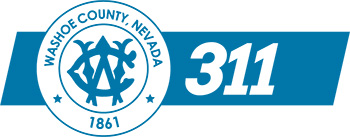What are the requirements for a "Veteran's" Exemption?
The Veteran`s exemption is applicable to an honorably discharged veteran of the Armed Forces of the United States who is a bona fide resident* of the State of Nevada and:
(a) Has served a minimum of 90 continuous days on active duty, who was assigned to active duty at some time between April 21, 1898, and June 15, 1903, or between April 6, 1917, and November 11, 1918, or between December 7, 1941, and December 31, 1946, or between June 25, 1950, and May 7, 1975, or between September 26, 1982, and December 1, 1987, or between October 23, 1983, and November 21, 1983, or between December 20, 1989, and January 31, 1990, or between August 2, 1990, and April 11, 1991, or between December 5, 1992, and March 31, 1994, or between November 20, 1995, and December 20, 1996;
(b) Has served on active duty in connection with carrying out the authorization granted to the President of the United States in Public Law 102-1; or
(c) Has served on active duty in connection with a campaign or expedition for service in which a medal has been authorized by the Government of the United States, regardless of the number of days served on active duty, and who received, upon severance from service, an honorable discharge or certificate of satisfactory service from the Armed Forces of the United States, or who, having so served, is still serving in the Armed Forces of the United States, is exempt from taxation.
When filing for the first time, it is necessary to bring in a copy of your separation papers showing dates of entry and discharge or release from active duty.
*NRS 361.015 "Bona fide resident" defined. "Bona fide resident" means a person who has:
1. Established a residence in the State of Nevada; and
2. Actually resided in this state for at least 6 months or has a valid driver`s license or identification card issued by the Department of Motor Vehicles of this state.
